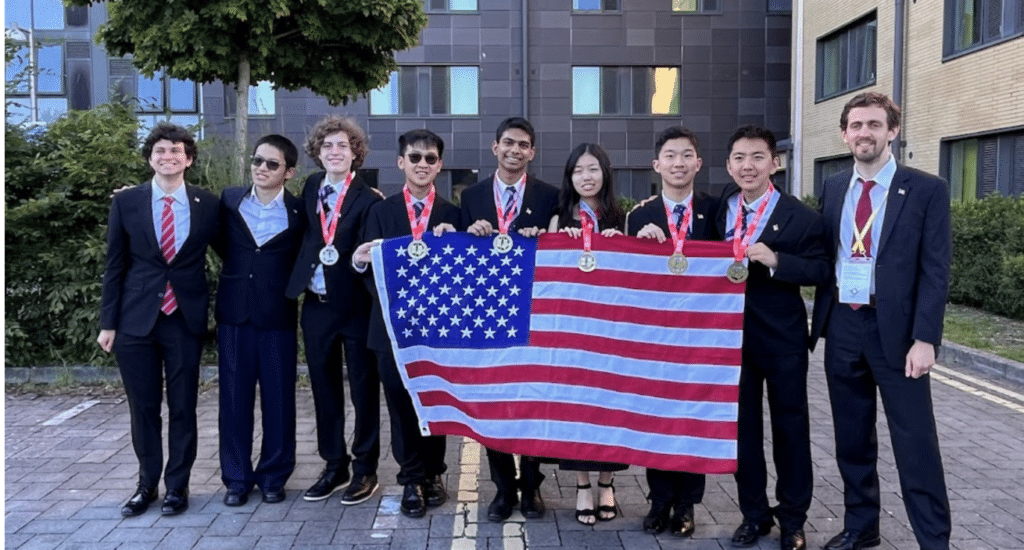
We are all born with different characteristics and proclivities depending on the genes we inherit. This applies to our ability to recognize complex patterns in information, to solve problems at a high level and to engage in complex abstraction. That’s why some people score higher than others in the math section of IQ tests.
Is natural talent immutable or can it be changed with education?
In 1968, educator Benjamin Bloom proposed that “anyone can learn anything,” and people differ only in the rate at which they learn. Therefore, all students can study the same curriculum, albeit at different rates. It was proposed that any student who failed to achieve mastery of a particular learning outcome could be given additional instruction and then retested, continuing the cycle until mastery was achieved. This approach, later called “mastery learning” flew under several tag lines such as, “Learning is a matter of attitude, not aptitude,” and “There are no bad students, only bad teachers.” Under the mastery learning philosophy of education, the explanation for failure was transferred from the student’s ability to the method of instruction.
This philosophy of education led to the denial of giftedness and the disbanding of programs for students who displayed special abilities at an early stage. In September 2004, Time Magazine published an article titled, Saving Smart Kids, that brought public attention to a research study revealing the importance of accelerating gifted students to grades where they can mix with their intellectual peers rather than their age cohort. The study titled, A Nation Deceived: How Schools Hold Back America’s Brightest Students, explained how policies against special programs for the gifted, and in particular, acceleration have squandered much of the talent of American children. Sounding the alarm on failed policies, the authors state:
Is America ignoring excellence? Newspaper headlines proclaim that our nation’s schools are producing weak students who lag behind age-peers in other countries. Meanwhile, there is a quieter story that’s been kept in the dark—but is just as important to our country’s future.
In every state, in every school, in huge cities, and in tiny farm communities, students are ready for much more challenge than the system provides.
These children perform better than any politician dares to expect. They are the top scorers, the ones who break the curve. They are the kids who read shampoo bottles at age three, and read newspaper editorials at age five. They can add up the cost of groceries faster than a cash register. They shock their parents and wow their grandparents.
But when they enter school, things change. America’s school system keeps bright students in line by forcing them to learn in a lock-step manner with their classmates.
Among the reasons given in the study for the political opposition to special treatment of the gifted are “concerns about equity” and “that other students will be offended if one child is accelerated.” Throughout most of the 20th century, many psychologists subscribed to the belief that intelligence was a result of nurture (training) rather than nature (genetics). It remained for research to decide the question.
What we have discovered in the past three decades?
In 1990, Thomas J. Bouchard et al. published a seminal article titled, Sources of Human Psychological Differences: The Minnesota Study of Twins Reared Apartin which they assembled 100 sets of identical twins who were separated early in life and raised apart. All participants in the study completed about 50 hours of medical and psychological assessment.
Since identical twins come from a single fertilized egg, they share virtually 100% of their alleles and can be considered to be genetically identical. Furthermore, since they were raised apart, the difference in their IQs, when tested at the end of their separation, could be entirely attributable to environmental factors. Hence, Bouchard et al. were able to estimate the difference in IQ attributable to genetics, using the correlation in the IQ scores of the twins. The researchers reported “about 70% of the variance in IQ was found to be associated with genetic variation.” The authors cautioned that this finding did not imply that IQ cannot be enhanced by rich experiences.
In 2011, a large group of researchers published the results of a genome-wide analysis of 549,692 single nucleotide polymorphisms (SNPs) involving 3511 unrelated adults. (An SNP represents a difference in a single DNA building block, called a nucleotide.) They reported:
Our results unequivocally confirm that a substantial proportion of individual differences in human intelligence is due to genetic variation, and are consistent with many genes of small effects underlying the additive genetic influences on intelligence. … [Furthermore] purely genetic (SNP) information can be used to predict intelligence.
Although natural talent accounts for a significant part of success in mathematics and science, passionate focus, intuition, curiosity and a formidable work ethic are vitally important in determining which people will of high natural talent will actualize their potential in high achievement.
